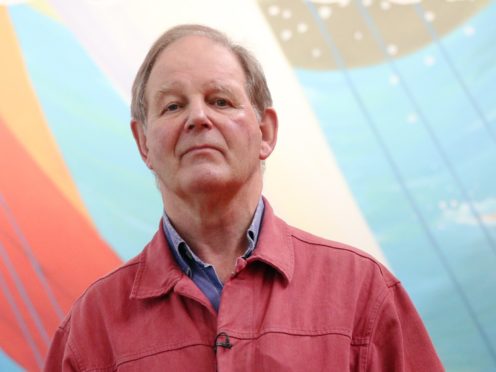Sir Michael Morpurgo has warned that Britons risk losing their human rights if they continue to take them for granted.
The 75-year-old author said many had forgotten how flouting European people’s basic freedoms had directly led to the “barbarity” of the Second World War and the Holocaust.
Sir Michael, a former Children’s Laureate, spoke during an event to launch Fly The Flag week at London’s Somerset House.
What do #humanrights mean to you? We're learning about #FlyTheFlag70, @aiww's flag and the UDHR pic.twitter.com/vVgTFQCkpN
— Fly the Flag (@FlytheFlag70) June 24, 2019
The performance, celebrating 70 years since the creation of the Universal Declaration of Human Rights, featured a flag designed by Chinese artist Ai Weiwei.
Sir Michael told the Press Association that Britain’s pursuit of the “capitalistic dream” had thrown the future of its people’s human rights into doubt.
He said: “We have become, as a people, so used to our human rights that we forget we have them.
“There is even a spirit in the country where they don’t really matter, they say we’ve got too many of them and they interfere with our capitalistic dream.
The #HumanRights flag designed by @aiww flies above @SomersetHouse at the launch of #FlytheFlag70 pic.twitter.com/CZxU2bWf1R
— Liberty (@libertyhq) June 24, 2019
“That’s the real worry – that we take the thing too much for granted now.
“And when you think, for hundreds of years people have gone to the stake and been imprisoned and tortured and abused in order that we can speak our minds and have freedoms and rights that in previous generations were just to be dreamed of.”
Sir Michael, who wrote new words to the early 20th century US protest song Bread And Roses for the event, said he was “worried” by calls for the UK to abandon the European Convention on Human Rights.
He said: “(The Second World War), that’s when the barbarity of not having human rights, not respecting other people’s freedoms of worship and whatever, that’s what it leads to.
Liberty Director @marthaspurrier and @CoreyStoughton are at @SomersetHouse this morning for the launch of #FlytheFlag70 celebrating 70 years of the Universal Declaration of Human Rights pic.twitter.com/rz6ukZgD8d
— Liberty (@libertyhq) June 24, 2019
“What’s important is to remind us now that this matters. It really does matter. We live in a world that is full of dangers and we have to stand up for what it is we believe in.”
He also urged people to remember the “wonderful” suffragettes who secured women the vote, warning that their “brave” sacrifice should not be forgotten.
He said: “At each stage people have suffered and suffered. Most recently, a century or so ago, women got up and said ‘That’s enough. We are not going to put up with this any more.’
“And what happened to them? Into prison, force-fed, all this sort of stuff. These were brave, brave people. Wonderful people.”
Some 150 organisations are involved in the week-long event, including advocacy group Liberty, Amnesty International, the National Theatre, Tate, Sadler’s Wells and Fuel.
Weiwei, an activist and frequent government critic, and other participants visited 40 refugee camps globally where they collected the footprints of displaced men, women and children for the flag.
The performance was hosted by theatre director Sam West, Irish actress Kate McGrath and Egyptian actor Khalid Abdalla.
Fly The Flag week runs from June 24 to 30 around the UK.
